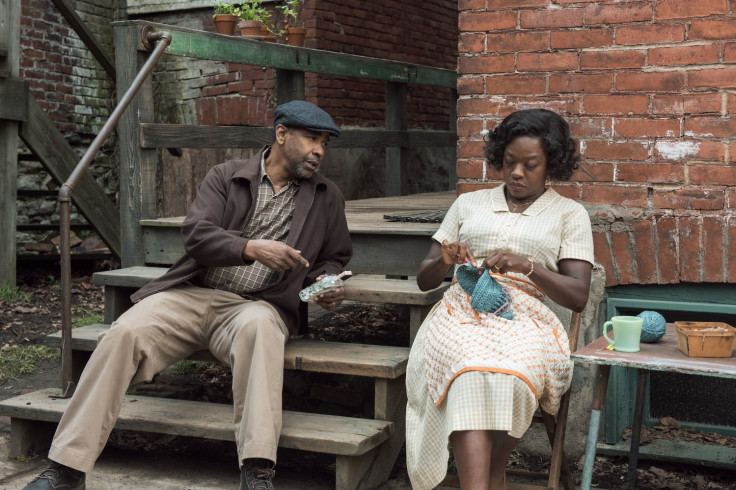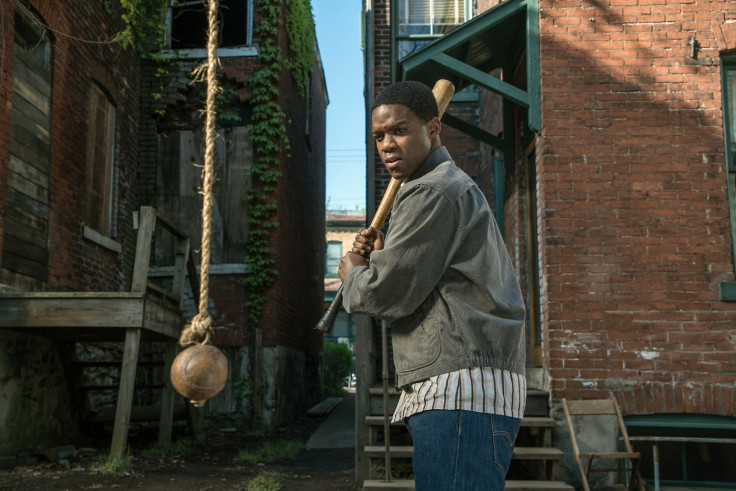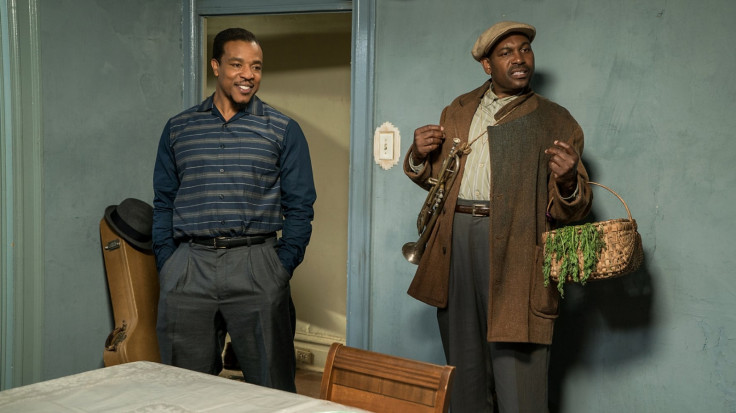Fences review: Denzel Washington is pure powerhouse in one of his most three-dimensional roles
August Wilson's Pulitzer Prize-winning play finally gets a film adaptation, and it was worth the wait.
Denzel Washington takes both the director's chair and centre-stage in the long-awaited adaptation of August Wilson's award-winning 1983 play Fences. Teaming up with Viola Davis, he tells the story of a middle-aged sanitation worker Troy Maxson, who struggles to deal with the pressures of family and coming to terms with where his life has ended up, after his dreams of becoming a professional baseball player were dashed in his youth.
In its opening seconds alone, it's evident that Fences is based on a play. Pittsburgh, Pennsylvania. 1950s. Its time period makes it feel simple yet stagy all at the same time, as soon as the images appear on-screen. The script was adapted by Wilson himself, before his death from cancer in 2005 – it's a quirk of Hollywood that he has received an Oscar nomination 12 years after his death, but he was desperate to see a film version of his play. That script rarely allows Washington to come up for air as we see Troy and best friend Bono (Stephen Henderson) finish up their day at work and walk to the former's back yard, where they crack open a bottle of gin and start swapping stories. Stories about the archaic rules keeping them from getting jobs as waste collection drivers rather than can lifters due to the colour of their skin and his former aspirations of becoming a baseball player are unravelled. (Turns out, thanks to a stint in prison, he was too old to see them through by the time the sport became racially integrated)...

It's a spark-filled, consuming scene – with almost no physicality and full of heavy dialogue – setting the audience up for what's to come for the rest of the picture. You realise quickly that this wordy outing is going to have to be listened to carefully if you're going to enjoy it but more than that, it sets up the two lead characters brilliantly.
Troy is depicted as a dominant man, commandeering not only the alcohol bottle but the conversation too, as he details to Bono and his wife-of-18 years Rose (Davis) of how he wrestled with 'Death' for three days once and how he could play sports better than most athletes in professional teams these days in his heyday. He's jovial, laughing when he speaks, but the chip on his shoulder forged from his dissatisfaction with life and abandoned dreams rears its head frequently, giving him an intensity too.
Rose, on the other hand, appears much more demure and easy-going, as she assures Troy that "things are changing" and tells him he shouldn't keep letting things get to him so much between giggles and cross-stitches. It soon becomes apparent that it's not just here that domestic tasks are often her focus either. Be it knitting, hanging out the washing or preparing some food for the men in her life; an understated yet effective way of showcasing all she does for the family while Troy insists on constantly telling her what he does.

Fences is full of such intricacies. Contrary to what people might think reading the synopsis or taking note of its best picture Oscar nomination, its a film that's far from sanctimonious. Of course, it makes poignant statements about the era and race inequality of the times (and makes you ponder on how far we've really come) but it says more about a working-class family rather than society as a whole. Exposing us, agonisingly slowly, to the previously unseen cracks and intimate, irreparable wedges that divide them, threatening to tear them apart emotionally.
Every viewer will be able to relate to one aspect or another. If not the prejudice that has held Troy back or his own conclusion that he's been dealt a rough hand of cards, then the crippling burdens of his day job or the dysfunctional relationships he has with his sons Lyons (Russell Hornsby and Jovan Adepo) might resonate. Fences presents such three-dimensional characters and tales that makes it worthy of all the acclaim that it has been receiving as of late.

As so few scenes take place away from the plain-walled rooms and stony courtyard of the Maxsons' dwelling, emphasis is on character and with nothing else to really concentrate on, much is expected of the actors and their performances. Looking at the talent on offer though, it's hardly surprising that each one shoulders the responsibility with seeming ease.
There are no real heroes and villains of the piece but with Troy at the epicentre, he can't help but garner the most attention. In his least vain role to date, Washington transforms from a grumpy yet charismatic man to someone whose bullying and bitter selfishness becomes apparent following a mid-way revelation. At the beginning, you're smiling along with him. By the end, it's hard to say you see him in the same light, but miraculously, he never completely loses the audience's sympathy.
This is no one-man show though and Davis makes for the perfect scene equal, and often scene-stealer, when she's given the spotlight. In one particularly heartbreaking moment – the aforementioned revelation in fact – she channels both stifled anger and crippling grief as she learns (at the same time we do) that Troy isn't quite the stand-up husband he's pretended to be all this time.
Grand enough in its story-telling to warrant its place on the big screen, but not so flashy and cinematic that it completely abandons its source material, Fences is a worthy adaptation of a Pulitzer Prize-winning stage show. Not all sequences translate as well as they could have however, like disabled brother Gabe whose inclusion feels both a little heavy-handed and overly saccharine and a particularly hokey shot involving some Heaven-like sunlight that is sure to shake you out of the moving scene it's plonked in the middle of. But with two powerhouse performances full of gravitas from Davis and Washington – both of whom won Tony awards for their work in the Broadway revival back in 2010 and are both up for Oscars – it's hard to see how this could have been done any better.
© Copyright IBTimes 2025. All rights reserved.






















